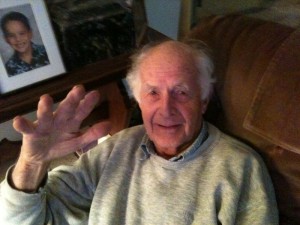The god of the office goes to the advent market between the two big museums, across the street from more museums (on the one side) and a palace on the other, because it has a Christmas post office and his wife wants to mail Christmas cards with pretty holiday-themed stamps rather than the ugly printed stickers all the post offices have now. He is in a hurry because he only has an hour for lunch and it takes an estimated 30 minutes to get there from his office, unless there is heavy traffic, like today, in which case it takes 45 minutes to get there, meaning he will be at least half an hour late getting back to the office today. The god of the office reminds himself that everyone else at the office habitually comes back to work between 15 and 60 minutes late after lunch, everyone but him, and he decides to relax.
In this relaxed state, the god of the office searches the advent market for the Christmas post office but following a meticulous search determines there is none. There is a photo booth where it was last year. So he walks back to the parking garage to fetch his car and return to the office.
On his way there he notices a couple standing at one of the high, round tables people stand at at the advent market to drink their mulled wine and hot punch. The couple are looking at him with recognition.
What, thinks the god of the office, who considers himself invisible and therefore is uncomfortable being noticed.
There are four possibilities, he reckons. These are, in order of diminishing likelihood,
- They are wondering what a hobo is doing with so many Christmas cards;
- They are wondering if they have seen him somewhere before and if so, Where.
- They are wondering if he is some sort of artist, because who else has long white hair?
- They have him confused with some specific person.
- They actually know him and are insulted that he doesn’t recognize them.
- They find him attractive. Anything is possible, the god of the office reminds himself. There was a guy on the teevee on the science channel who was in (erotic, not platonic) love with a power plant, he reminds himself. So who knows?
Six things.
The god of the office, having changed his appearance, has grown used to not being recognized by people he hasn’t seen for a couple years, so being recognized, or “recognized”, feels weird.
He can’t stop wondering about the people.
They had that look you get when you see someone famous and want to be discreet. He had it himself when he was walking through town one night and saw Michael Haneke and his beautiful wife swaying drunk down the sidewalk, laughing, that look where you’re thinking, OMG MICHAEL HANEKE AND SPOUSE! ACT NORMAL!
Maybe they thought he was Michael Haneke, the god of the office thinks. Long white hair, white beard, beautiful wife.
What is Michael Haneke doing with all those Christmas cards, they might have asked each other.
And why is he wearing that shabby coat?
P.S. he is only 20 minutes late to work, and is the first one back.
